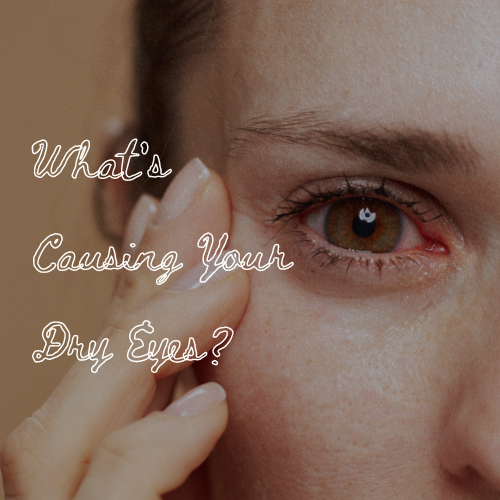Think dry eye is just a minor inconvenience? Think again.
This common condition can cause significant discomfort, affect your vision, and even lead to more serious eye problems if left untreated. It's time to understand dry eye better and learn how to find relief.
Beyond the Gritty Feeling
Dry eye isn't just about feeling like you have sand in your eyes. It occurs when your tears aren't able to properly lubricate your eyes, either because you don't produce enough tears or because your tears evaporate too quickly. This can lead to a range of symptoms, including:
- Burning, stinging, or scratchy sensation
- Redness
- Blurry vision
- Watery eyes (a reflex reaction to dryness)
- Sensitivity to light
- Difficulty wearing contact lenses
What's Causing Your Dry Eyes?
Several factors can contribute to dry eye, including:
- Age: Dry eye becomes more common as you get older.
- Environmental factors: Dry air, wind, and smoke can worsen dryness.
- Medical conditions: Certain conditions like Sjögren's syndrome, rheumatoid arthritis, and thyroid problems can increase your risk.
- Medications: Antihistamines, decongestants, and antidepressants can sometimes contribute to dry eye.
- Screen time: Staring at screens for extended periods can reduce blinking, leading to dryness.
Finding Relief: Your Action Plan
-
Artificial Tears: Over-the-counter lubricating eye drops can provide temporary relief. Choose preservative-free options if you need to use them frequently.
-
Warm Compresses: Applying a warm compress to your closed eyes can help stimulate tear production and soothe discomfort.
-
Eyelid Hygiene: Gently clean your eyelids daily with a mild cleanser to remove debris and reduce inflammation.
-
Environmental Adjustments: Use a humidifier to add moisture to the air, especially in dry climates or during winter. Avoid air blowing directly into your eyes, and consider wearing wraparound sunglasses outdoors.
-
Omega-3 Fatty Acids: Studies suggest that omega-3 fatty acids found in fish oil or flaxseed oil may help improve tear production.
-
Prescription Medications: If over-the-counter remedies don't help, your eye doctor may prescribe eye drops to reduce inflammation or stimulate tear production.
Don't Let Dry Eye Hold You Back
Don't let dry eye disrupt your daily life. By understanding the causes and taking proactive steps, you can find relief and protect your vision. If you're struggling with persistent or severe dry eye symptoms, consult your eye doctor for personalized diagnosis and treatment. Your eyes will thank you!

